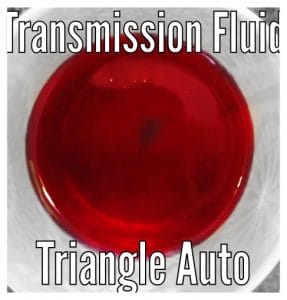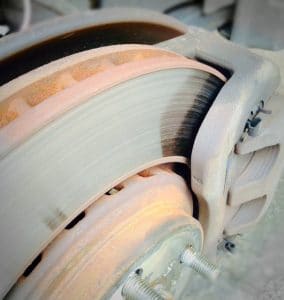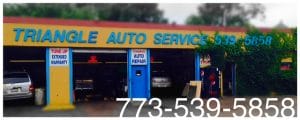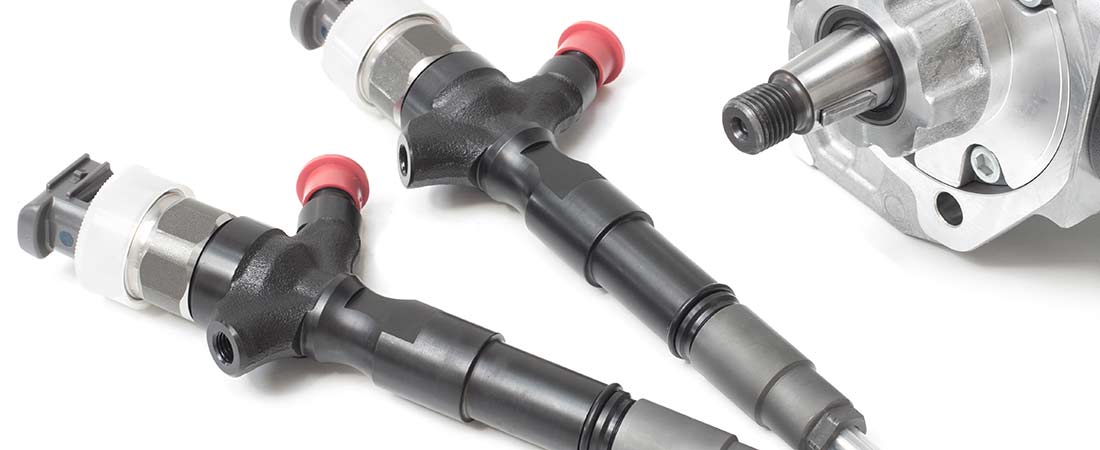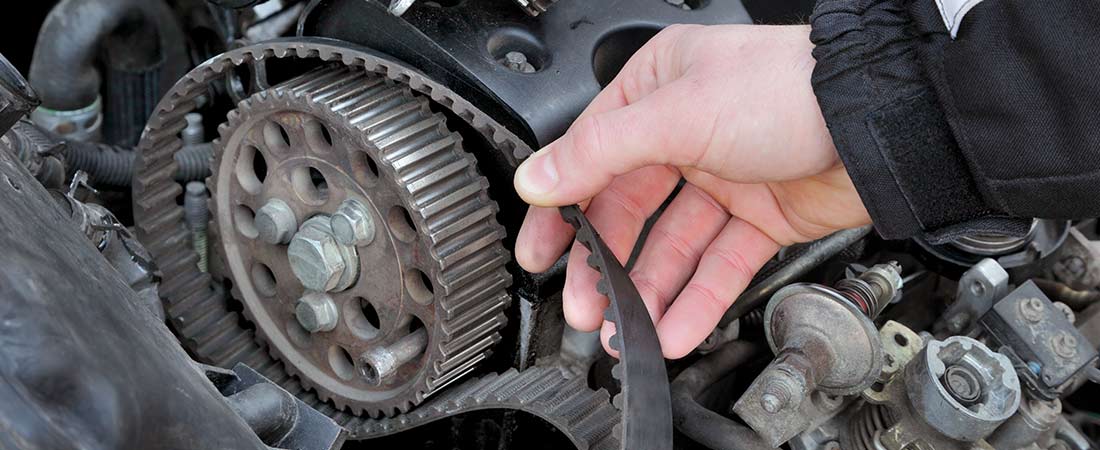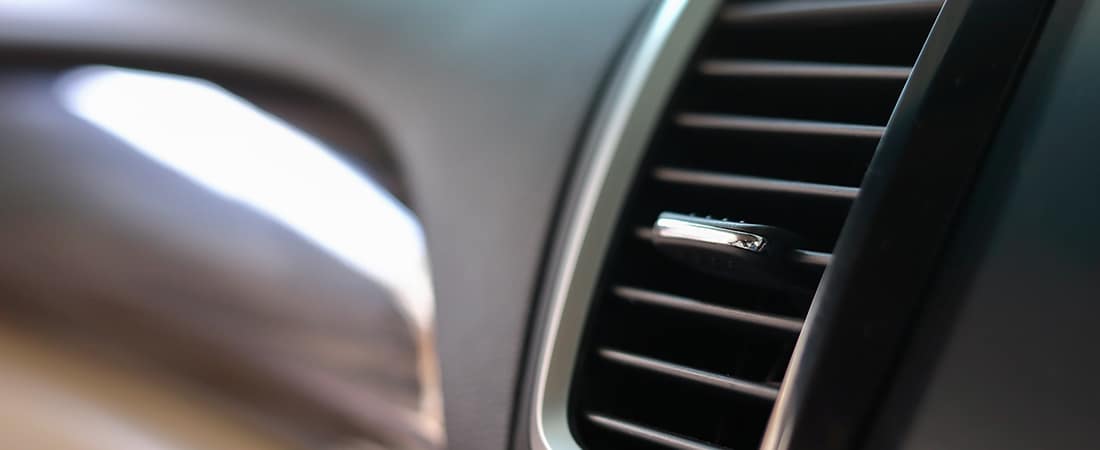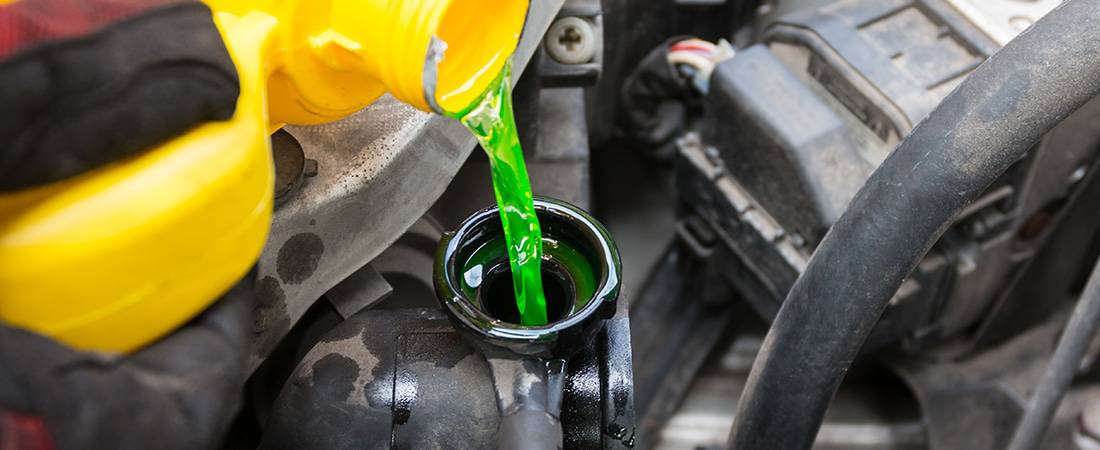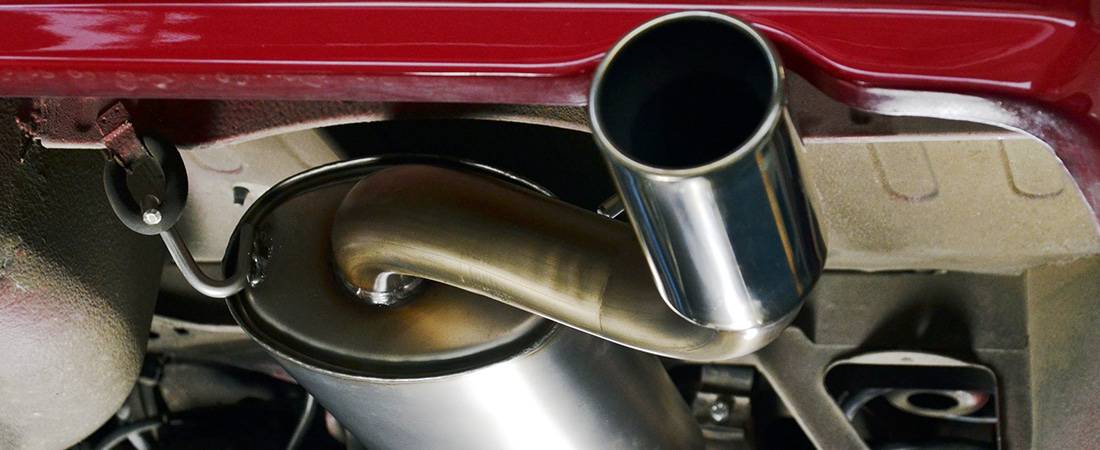The more you know about your vehicle, the more likely you’ll be able to avoid car repair problems. You can detect many common vehicle problems by using your senses: looking around the area around your vehicle, listening for a strange noise, sensing a difference in the way your vehicle drives, or even noticing unusual smells. These can all be indicators that you may encounter car repair concerns.
Looks Like Trouble
Small stains or an occasional drop of fluid under your vehicle may not mean much, wet spots deserve attention; check puddles immediately.
You can usually identify fluids by their color and consistency:
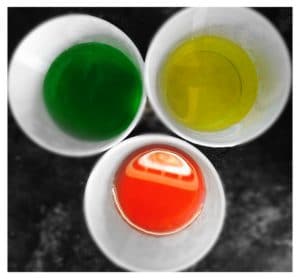
Different types of Antifreeze: Green (conventional) Orange (G.M.) Yellow (Import). Car repair Chicago
Yellowish green, pastel blue or florescent orange colors indicate an overheated engine or an antifreeze leak caused by a hose, water pump or leaking radiator. Schedule to have a cooling system pressure test performed on your vehicle by Triangle Auto.
A dark brown or black oily fluid means the engine is leaking oil. A bad seal or gasket could cause the leak. Many oil leaks are minor and can be lived with. Its a good idea to have a oil leak looked at, its a cause for concern well let you know.
Car Repair Chicago
A red oily spot indicates a transmission or power-steering fluid leak. Transmission fluid leaks should be checked, if the transmission get low on fluid it can cause major car repair problems.
A puddle of clear water usually is no problem. It may be normal condensation from your vehicle’s air conditioner. We get many calls on the passenger side carpet gets wet. This is usually caused by a evaporator drain becoming plugged up. Usually not a big concern, but have it addressed, wet carpet can lead to unpleasant odor problems.
Smells Like Trouble
Some problems you can smell. You can detect them by their odor:
The smell of burned toast – a light, sharp odor – often signals an electrical short and burning insulation. To be safe, try not to drive the vehicle until the problem is diagnosed. If the smell starts getting bad disconnect the battery.
The smell of rotten eggs, a continuous burning or a sulfur smell – usually indicates a problem in the catalytic converter or other emission control devices. Don’t delay diagnosis and repair. If put off a service engine soon light may illuminate.
A thick acrid odor usually means burning engine oil. Look for sign of a leak. You may see a white color smoke from under the hood.
The smell of gasoline vapors after a failed start may mean you may have flooded the engine. Wait a few minutes before trying again. Today’s fuel injected vehicles this is rarely the problem. If the odor persists, chances are there’s a leak in the fuel system – a potentially dangerous problem that needs immediate attention.
Burning resin or an acrid chemical odor may signal overheated brakes or clutch. Check the parking brake. Stop. Allow the brakes to cool after repeated hard braking on mountain roads. Light smoke coming from a wheel indicates a stuck brake caliper. The vehicle should be towed for brake repair.
A sweet, steamy odor indicates a coolant leak. If the temperature gauge or warning light does not indicate overheating, drive carefully to the nearest service station, keeping an eye on your temperature gauges. If the odor is accompanied by a hot, metallic scent or steam from under the hood, your engine may have overheated. Pull over immediately. Continued driving could cause severe engine damage. The vehicle should be towed for repair.
Sounds Like Trouble
Squeaks, squeals, rattles, rumbles, and other sounds provide valuable clues about problems and maintenance needs. Here are some common noises and what they mean:
Squeal – A shrill, sharp noise, usually related to engine speed:
Loose or worn power steering, fan or air conditioning belt. Belt tensioners and idler pulleys wearing out may cause belt noise.
Click – A slight sharp noise, related to either engine speed or vehicle speed:
Loose wheel cover.
Loose or bent fan blade.
Stuck valve lifter or low engine oil.
Screech – A high-pitched, piercing metallic sound; usually occurs while the vehicle is driving:
Caused by brake wear indicators to let you know it’s time for brake maintenance.
Rumble – a low-pitched rhythmic sound.
Rusted exhaust pipe, converter or hole in the muffler.
Worn universal joint or other drive-line component.
Ping – A high-pitched metallic tapping sound, usually related to engine speed:
Caused by using gas with a lower octane rating than recommended. Check your owner’s manual for the proper octane rating. If the problem persists, engine ignition timing may be at fault.
Heavy Knock – A rhythmic pounding sound:
Worn crankshaft or connecting rod bearings.
Loose transmission torque converter.
Clunk – A random thumping sound:
Loose shock absorber or other suspension component.
Loose exhaust pipe or muffler.
Feels Like Trouble
Difficult handling, a rough ride, vibration and poor performance are symptoms you can feel. They almost always indicate a problem.
Steering
Misaligned front wheels and/or worn steering components, such as the tie rod or ball joint, can cause the vehicle to wandering or difficulty steering in a straight line.
Pulling – the vehicle’s tendency to steer to the left or right – can be caused by something as routine as under-inflated tires, or as serious as a damaged or misaligned front end.
Ride and Handling
Worn shock absorbers or other suspension components – or improper tire inflation – can contribute to poor cornering.
While there is no hard and fast rule about when to replace shock absorbers or struts, try this test: bounce the vehicle up and down hard at each wheel and then let go. See how many times the vehicle bounces. Weak shocks will allow the vehicle to bounce twice or more.
Springs do not normally wear out and do not need replacement unless one corner of the vehicle is lower than the others. Overloading your vehicle can damage the springs.
Balance tires properly. An unbalanced or improperly balanced tire causes a vehicle to vibrate and may wear steering and suspension components prematurely.
Brakes
Brake problems have several symptoms. Schedule diagnosis and repair if:
The vehicle pulls to one side when the brakes are applied.
The brake pedal sinks to the floor when applying the brakes.
You hear or feel scraping or grinding during braking.
Your brake pedal pulsates when applying the brakes
The “brake” light on the instrument panel is lit.
Engine
The following symptoms indicate engine trouble. Get a diagnosis and schedule the vehicle for repair.
Difficulty starting the engine.
The “check engine” light on the instrument panel is lit.
Rough idling or stalling.
Poor acceleration.
Poor fuel economy.
Excessive oil use (more than one quart between changes).
Engine continues running after the key is removed.
Transmission
Poor transmission performance may come from actual component failure or a simple disconnected hose or plugged filter. We like to check the simple items first; transmission repairs normally are expensive. Some of the most common symptoms of transmission problems are:
Abrupt or hard shifts between gears.
Delayed or no response when shifting from neutral to drive or reverse.
Failure to shift during normal acceleration.
Slippage during acceleration. The engine speeds up, but the vehicle does not respond.
TROUBLE SHOOTING
Car trouble doesn’t always mean major repairs. Here are some common causes of trouble and techniques to help you fix problems:
Alternator – Loose wiring can make your alternator appear defective. Your technician should check for loose connections and perform an output test before replacing the alternator.
Battery – Corroded or loose battery terminals can make the battery appear dead or defective. Your technician should clean the terminals and test battery function before replacing the battery.
Starter – What appears to be a defective starter actually may be a dead battery or poor connection. Ask your technician to check all connections and test the battery before repairing the starter.
Muffler – a loud rumbling noise under your vehicle indicates a need for a new muffler or exhaust pipe.
Tune-up – The old-fashioned “tune-up” may not be relevant to your vehicle. Fewer parts, other than belts, spark plugs, hoses and filters, need to be replaced on newer vehicles. Follow the recommendations in your owner’s manual. Please feel free to give us a call, Triangle Auto Service, Chicago 773-539-5858.


